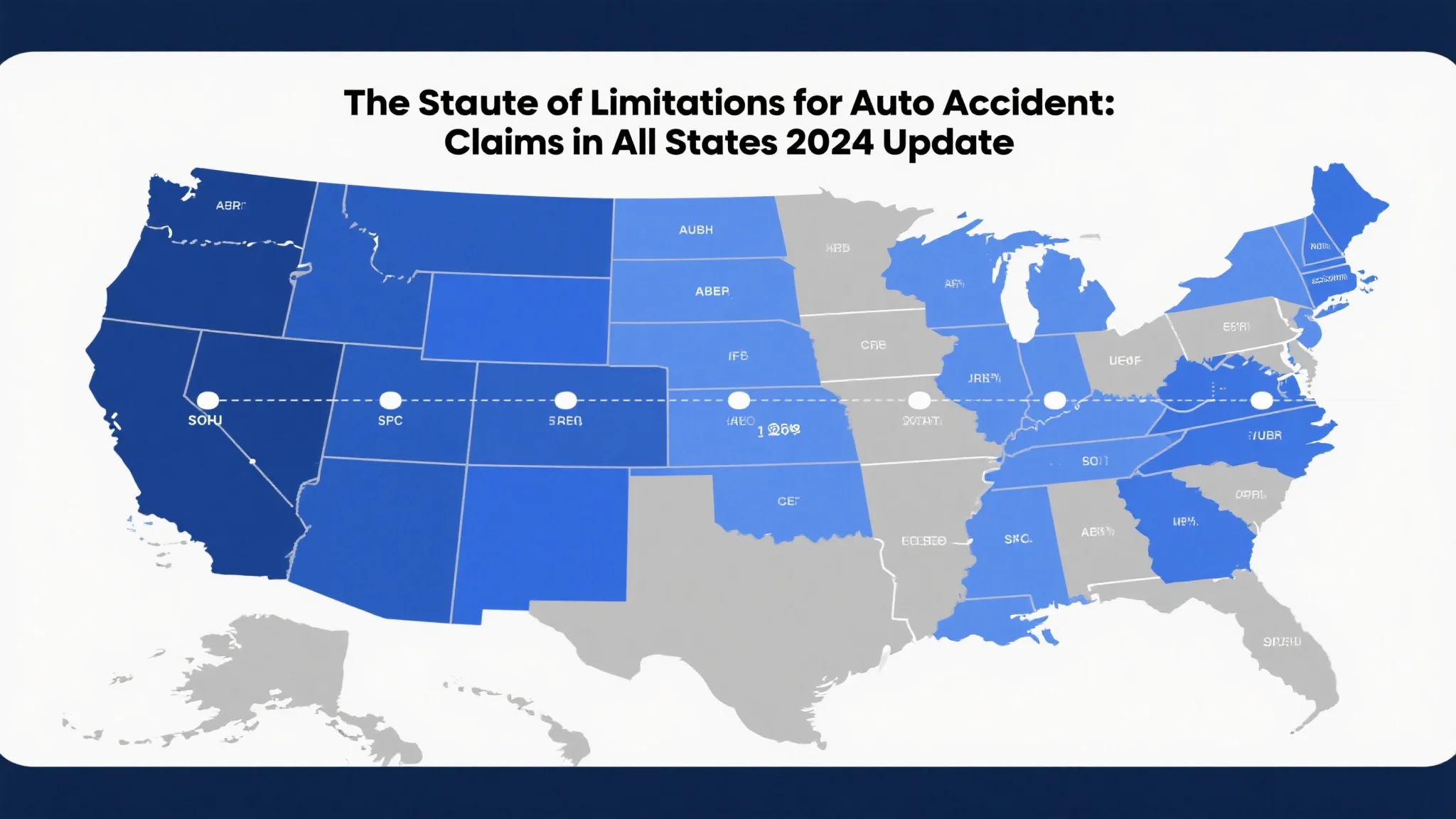When you’re involved in a car accident, the immediate aftermath can be overwhelming. Between dealing with injuries, vehicle damage, and insurance companies, it’s easy to make critical mistakes that could significantly impact your ability to recover fair compensation. Insurance attorney advice consistently shows that certain errors occur repeatedly among claimants, often resulting in reduced settlements or denied claims altogether. Understanding these pitfalls before they happen can mean the difference between receiving adequate compensation and walking away with far less than you deserve. The complexity of modern insurance policies, combined with sophisticated claim adjustment strategies employed by insurance companies, creates numerous opportunities for well-meaning accident victims to inadvertently sabotage their own cases. Professional legal representation becomes crucial not just for navigating the legal system, but for avoiding the fundamental mistakes that destroy otherwise valid claims. Insurance companies have teams of experienced adjusters and attorneys working to minimize payouts, and they’re well-versed in identifying and exploiting common claimant errors. Without proper guidance, even the most straightforward accident claim can quickly become complicated, leaving victims struggling to prove their case and recover the compensation they need for medical bills, lost wages, and other damages. The stakes are particularly high in today’s legal environment, where insurance companies are increasingly aggressive in their claim denial strategies and where even minor procedural errors can have major consequences for your financial recovery. This comprehensive analysis examines the most destructive mistakes that can derail your car accident claim, providing essential insights that could save you thousands of dollars and months of unnecessary legal complications. By understanding these critical errors before they occur, you can take proactive steps to protect your interests and maximize your chances of achieving a favorable outcome in your car accident claim.
Failing to Seek Immediate Medical Attention and Proper Documentation
One of the most devastating mistakes accident victims make is failing to seek immediate medical attention, even when they don’t feel seriously injured at the scene. This error creates multiple problems that can completely undermine your claim’s validity and significantly reduce your potential compensation. Insurance companies routinely use gaps in medical treatment as evidence that injuries weren’t serious or weren’t caused by the accident, making this mistake particularly costly for claimants who later discover they have significant injuries. The human body’s natural response to trauma often masks pain and injury symptoms immediately following an accident, with conditions like whiplash, concussions, and soft tissue injuries frequently not manifesting symptoms until hours or days later. When you delay seeking medical care, insurance adjusters will argue that your injuries were either pre-existing, caused by something other than the accident, or simply not severe enough to warrant immediate attention. This argument becomes even more powerful when there’s a significant gap between the accident date and your first medical visit, as adjusters will question why someone with genuine injuries would wait to seek treatment. Professional car accident claim mistakes analysis reveals that delayed medical treatment is one of the primary reasons claims are either denied outright or settled for substantially less than their true value. The documentation aspect of immediate medical care is equally critical, as emergency room records, ambulance reports, and initial physician assessments create an official medical record that directly links your injuries to the accident. Without this immediate documentation, you’ll face an uphill battle proving that your injuries were accident-related, especially if you have any history of similar medical issues or if significant time passes before you seek treatment. Insurance companies employ sophisticated medical review processes that scrutinize every aspect of your treatment timeline, looking for inconsistencies or gaps they can exploit to minimize their liability. Even if you ultimately receive extensive medical treatment, the absence of immediate post-accident care creates doubt about the severity and causation of your injuries that can persist throughout the entire claims process. This mistake is particularly problematic in cases involving soft tissue injuries, which are already difficult to prove and document, as delayed treatment provides insurance companies with additional ammunition to dispute the legitimacy of your claims. The financial impact of this error can be substantial, as insurance companies may refuse to cover medical expenses incurred after a significant delay, arguing that these costs are unrelated to the original accident.
Providing Recorded Statements Without Legal Representation
Agreeing to provide recorded statements to insurance companies without first consulting with an attorney represents one of the most dangerous mistakes accident victims can make, yet it’s also one of the most common due to the seemingly helpful and urgent nature of these requests. Insurance adjusters are trained professionals who know exactly how to phrase questions to elicit responses that can later be used against you, and they often contact accident victims within hours of the incident when emotions are high and thinking may not be entirely clear. These recorded statements become permanent parts of your claim file and can be used as evidence against you throughout the entire claims process, including in court if your case proceeds to litigation. The timing of these requests is particularly problematic because accident victims are often still in shock, may be taking pain medications that affect their thinking, and typically don’t yet have a complete understanding of the extent of their injuries or the full impact the accident will have on their lives. Claim preservation strategies consistently emphasize the importance of avoiding these statements until you’ve had time to fully assess your situation and consult with qualified legal counsel. Insurance adjusters use sophisticated questioning techniques designed to get you to minimize your injuries, accept partial blame for the accident, or make statements that can be taken out of context later. They may ask seemingly innocent questions about your daily activities, work schedule, or general health that can later be twisted to suggest your injuries aren’t as severe as claimed or that you have pre-existing conditions that contributed to your current problems. The permanent nature of these recordings means that any inconsistencies between your initial statement and later testimony or medical findings will be highlighted and used to attack your credibility. Even honest mistakes or incomplete information provided during these early conversations can become major obstacles to recovering fair compensation. Insurance companies often present these statement requests as routine procedures that will help expedite your claim, but the reality is that they’re primarily evidence-gathering tools designed to protect the insurance company’s interests, not yours. The legal implications of these statements extend far beyond the immediate claims process, as they can be used in depositions, court proceedings, and settlement negotiations to undermine your position. Professional legal representation provides crucial protection during this vulnerable period, as experienced attorneys understand the tactics used by insurance adjusters and can ensure that any necessary communications are handled in a way that protects your interests rather than compromising them.

Accepting Quick Settlement Offers Before Understanding Full Damages
The temptation to accept quick settlement offers from insurance companies represents one of the most financially devastating mistakes accident victims can make, often resulting in settlements that are a fraction of what claims are actually worth. Insurance companies deliberately make these early offers when claimants are most vulnerable – typically within days or weeks of the accident when medical bills are mounting, income may be interrupted, and the full extent of injuries and damages isn’t yet known. These initial offers are strategically designed to appear generous while actually representing minimal compensation compared to the true value of most claims, and they almost always include language that prevents you from seeking additional compensation even if your injuries prove to be more serious than initially thought. The pressure to accept these offers is often intense, particularly for accident victims facing immediate financial hardship, but the long-term consequences of premature settlement can be catastrophic. Many injuries, particularly those involving the spine, brain, or soft tissues, don’t reveal their full impact for weeks or months after the initial accident, and accepting an early settlement means forfeiting your right to compensation for these later-discovered problems. Professional evaluation of car accident claim mistakes consistently shows that claimants who accept quick settlements typically receive 30-70% less compensation than those who wait for complete medical evaluation and proper legal representation. The calculation of true claim value involves numerous factors that aren’t immediately apparent, including future medical expenses, long-term disability impacts, lost earning capacity, pain and suffering, and potential complications from initial injuries. Insurance companies have access to sophisticated actuarial data and medical expertise that allows them to estimate the likely total cost of claims, but they rely on claimants’ lack of knowledge and immediate financial pressure to secure settlements far below these projections. The finality of settlement agreements means that once you sign, you typically cannot seek additional compensation even if your injuries worsen, require surgery, or result in permanent disability. This is particularly problematic in cases involving head injuries, spinal damage, or other conditions that may not fully manifest their effects for extended periods. The psychological pressure tactics used by insurance companies during this period are often subtle but effective, with adjusters emphasizing the uncertainty of litigation, the costs of legal representation, and the benefits of immediate payment while downplaying the potential value of waiting for complete medical evaluation. Understanding the true scope of your damages requires comprehensive medical evaluation, expert analysis of long-term prognosis, and careful calculation of both economic and non-economic losses – processes that simply cannot be completed in the immediate aftermath of an accident.
Inadequate Evidence Collection and Scene Documentation
The failure to properly collect and preserve evidence from the accident scene represents a critical error that can permanently damage your ability to prove liability and recover fair compensation. In today’s digital age, comprehensive evidence collection has become more important than ever, as insurance companies and opposing counsel have sophisticated methods for challenging claims and disputing liability. The immediate aftermath of an accident presents a unique window of opportunity to gather crucial evidence that may be lost forever if not collected promptly, including physical evidence, witness testimony, and environmental conditions that contributed to the accident. Many accident victims, understandably focused on immediate medical concerns and vehicle damage, fail to recognize the importance of thorough documentation until it’s too late to gather critical evidence. Professional insurance attorney advice emphasizes that evidence collection should begin immediately at the scene and continue throughout the claims process, as the strength of your evidence directly correlates with your ability to achieve favorable settlement outcomes. Photographic evidence has become particularly crucial in modern accident claims, as high-quality images can provide irrefutable proof of vehicle damage, road conditions, traffic control devices, and the overall accident scene. However, many claimants either fail to take photographs entirely or take insufficient images that don’t adequately document the full scope of the accident scene. Effective photographic documentation should include multiple angles of all vehicles involved, close-up shots of specific damage areas, wide shots showing the overall scene and vehicle positions, images of road conditions and weather factors, photographs of traffic signs and signals, and documentation of any visible injuries. The timing of evidence collection is critical, as accident scenes are typically cleared quickly, vehicles are towed and repaired, and physical evidence disappears rapidly. Witness testimony represents another crucial form of evidence that’s often lost due to inadequate collection efforts, as witnesses may leave the scene quickly and become difficult to locate later. Effective witness documentation requires collecting complete contact information, obtaining detailed written or recorded statements about what they observed, and ensuring that witness accounts are preserved in a format that can be used later in legal proceedings. The failure to properly document the accident scene often becomes apparent only when insurance companies dispute liability or when expert witnesses need detailed information to reconstruct the accident sequence. Modern accident reconstruction techniques rely heavily on physical evidence, measurements, and photographic documentation to determine factors like vehicle speeds, impact angles, and sequence of events, making comprehensive evidence collection essential for building strong cases.
Neglecting to Understand Insurance Policy Coverage and Limitations
One of the most overlooked yet potentially devastating mistakes in car accident claims involves failing to thoroughly understand the insurance coverage available and the limitations that may affect your recovery. This knowledge gap often results in claimants pursuing inadequate compensation sources while overlooking potentially valuable coverage options that could significantly increase their recovery. The complexity of modern insurance policies, with their various coverage types, limits, exclusions, and conditions, creates numerous opportunities for confusion and missed opportunities that can cost accident victims thousands of dollars in potential compensation. Most accident victims focus exclusively on the at-fault driver’s liability coverage without realizing that multiple insurance policies may provide coverage for their damages, including their own auto policy, umbrella policies, homeowner’s insurance, and even employer-provided coverage in certain circumstances. Understanding the full scope of available coverage requires careful analysis of policy language, coverage limits, and the specific circumstances of your accident, as seemingly minor details can have major impacts on your ability to recover compensation. Claim preservation strategies must account for the various insurance coverage sources and their respective limitations to ensure that claimants pursue all available avenues for recovery. The distinction between different types of coverage – such as liability, collision, comprehensive, uninsured/underinsured motorist, medical payments, and personal injury protection – becomes crucial when determining the best strategy for maximizing recovery. Many claimants discover too late that the at-fault driver carries only minimum liability coverage that’s insufficient to cover their damages, making their own uninsured/underinsured motorist coverage essential for adequate compensation. The timing requirements and notice provisions in insurance policies create additional complications, as failure to comply with specific deadlines or notification requirements can result in coverage denials even when valid claims exist. Policy exclusions represent another area where lack of understanding can prove costly, as certain activities, vehicle uses, or circumstances may not be covered even under otherwise comprehensive policies. The coordination of benefits between multiple insurance policies involves complex legal and contractual issues that require careful navigation to avoid inadvertent waiver of rights or acceptance of inadequate settlements. Insurance companies often fail to fully explain available coverage options or may even discourage claimants from pursuing certain types of coverage that could increase the total payout. The bad faith implications of insurance company conduct become particularly important when dealing with your own insurance carrier, as they have contractual obligations to act in your best interests that don’t apply to third-party insurers. Understanding policy limits and how they interact with the total value of your claim is essential for developing realistic expectations and appropriate settlement strategies, as pursuing claims that exceed available coverage may require different legal approaches than those with adequate insurance coverage.
Failing to Maintain Consistent Medical Treatment and Follow Medical Advice
The failure to maintain consistent medical treatment and follow prescribed medical advice represents one of the most damaging mistakes accident victims can make, as it provides insurance companies with powerful ammunition to dispute both the severity of injuries and their connection to the accident. Insurance adjusters are trained to scrutinize medical records for gaps in treatment, missed appointments, or failure to follow medical recommendations, using these findings to argue that injuries aren’t as serious as claimed or that the claimant’s own actions contributed to their ongoing problems. This mistake is particularly problematic because it often occurs gradually over time, with claimants initially following medical advice but becoming less compliant as they feel better or face financial pressures related to ongoing treatment costs. The documentation trail created by inconsistent medical care becomes a permanent part of your claim file and can be used against you throughout the entire claims process, making it essential to understand the importance of consistent treatment from the very beginning of your recovery. Professional analysis of car accident claim mistakes reveals that gaps in medical treatment are among the most frequently cited reasons for claim denials or reduced settlements, as they create doubt about both the severity and causation of claimed injuries. The medical treatment timeline becomes particularly important in cases involving soft tissue injuries, chronic pain conditions, or psychological trauma, where objective medical evidence may be limited and consistent treatment records become crucial for establishing the legitimacy of claims. Insurance companies employ medical review specialists who are specifically trained to identify inconsistencies in treatment patterns and use these findings to challenge claims, making it essential that claimants understand the importance of following through with all recommended medical care. The financial pressures associated with ongoing medical treatment often contribute to this mistake, as accident victims may discontinue treatment due to concerns about mounting medical bills or because they feel their condition has improved sufficiently. However, premature discontinuation of medical care can have serious long-term consequences for both your health and your legal claim, as it suggests to insurance companies that your injuries weren’t severe enough to require continued treatment. The types of medical care that are most important for claim documentation include not only primary medical treatment but also physical therapy, psychological counseling, specialist consultations, and diagnostic testing recommended by treating physicians. Each missed appointment or discontinued treatment becomes a potential weakness in your claim that insurance companies will exploit during settlement negotiations or litigation. The importance of following medical advice extends beyond just attending appointments to include compliance with prescribed medications, activity restrictions, and lifestyle modifications recommended by treating physicians. Insurance companies often obtain complete medical records and may identify instances where claimants failed to follow medical advice, using these findings to argue that the claimant’s own actions contributed to their ongoing problems or prevented proper healing.



